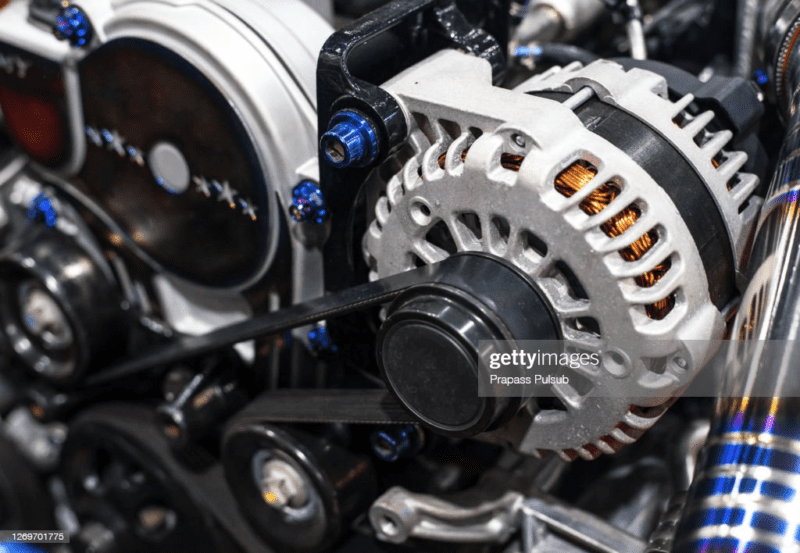Troubleshooting Your Car’s Alternator

The Car’s Alternator is an essential component of your vehicle’s charging system. It generates electrical power to keep your car’s battery charged while you drive. If the alternator fails, you may experience a variety of problems, including dim headlights, a dead battery, and trouble starting the car.
Here are some of the most common signs that your Car’s Alternator is not working well:
- Dim or flickering headlights. This is one of the most noticeable signs of trouble in Car’s Alternator. When the alternator fails to supply enough electrical power, your headlights, dashboard lights, and interior lights may appear dimmer than usual or intermittently flicker.
- Warning light on the dashboard. Modern vehicles are equipped with a dashboard warning light that resembles a battery or alternator symbol. This light serves as an indicator of potential electrical problems in Car’s Alternator. If you notice the alternator warning light illuminating while driving, it’s essential to address the issue promptly to avoid further complications.
- Weak or dead battery. The alternator is responsible for recharging the battery as you drive, ensuring it has enough power to start the engine. If your battery frequently becomes weak or dies unexpectedly, it could be a sign of malfunctioning of Car’s Alternator. While a dead battery doesn’t always indicate an alternator issue, it is crucial to investigate the root cause and rule out alternator failure.
- Strange noises. Unusual noises emanating from the engine compartment could be an indication of alternator trouble. A failing alternator may produce grinding, whining, or squealing sounds. These noises typically arise from worn-out bearings or a loose belt, both of which can impair the alternator’s performance. If you hear such sounds, it’s advisable to have your alternator inspected promptly.
- Electrical malfunctions. A deteriorating alternator can cause various electrical malfunctions within your vehicle. For instance, you might experience erratic behavior with your power windows, erratic engine performance, or unresponsive infotainment systems. These irregularities can be attributed to insufficient electrical power supply, emphasizing the need to diagnose and resolve the alternator issue.
- Battery voltage reading below 13.8 volts. If you have access to a multimeter, you can perform a simple test to assess the health of your alternator. Set the multimeter to the DC voltage range and connect it to the battery terminals while the engine is running. A healthy alternator should deliver a voltage reading between 13.8 and 14.2 volts. Readings significantly below this range may indicate an alternator problem.
If you notice any of these signs, it’s important to have your car’s alternator checked by a mechanic as soon as possible. A bad alternator can leave you stranded on the side of the road, so it’s important to take care of it right away.

Here are some additional tips to help you diagnose a bad alternator:
- Check the battery voltage. The battery voltage should be between 13 and 14.5 volts when the engine is running. If the voltage is lower than 13 volts, it is a sign that the alternator is not charging the battery properly.
- Check the alternator belt. The alternator belt should be tight and free of cracks or fraying. If the belt is loose or damaged, it can cause the alternator to overheat and fail.
- Have a mechanic test the alternator. A mechanic can use a diagnostic tool to test the alternator and determine if it is working properly.

By following these tips, you can help to diagnose a bad alternator and prevent it from leaving you stranded on the side of the road.
Tech Tip: Troubleshooting the Alternator Charging System | Delco Remy
Here are some additional things to keep in mind:
- The alternator is responsible for charging the battery and providing power to the car’s electrical system.
- A bad alternator can cause a variety of problems, including dim headlights, a dead battery, and trouble starting the car.
- If you suspect that your alternator is bad, it is important to have it checked by a mechanic as soon as possible.
- A bad alternator can be a safety hazard, so it is important to fix it as soon as possible.
I hope this helps!
The Future Of Electric Vehicles In The US – TheAutoEngineer.com

